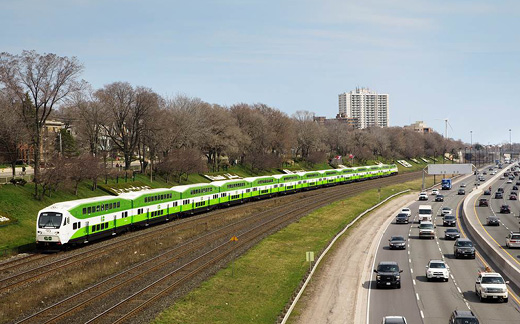Or, for those who insist on hearing it straight from the horse's mouth:
A division of Metrolinx, GO Transit is the regional public transit service for the GTHA area.
www.gotransit.com
For further discussions about the need for a commuter rail network centered on London, I recommend the "General Railway Discussions" thread...
I have to respectfully disagree here. The idea that mandates are immutable is not one to which I subscribe.
GO didn't originally serve Barrie or K-W or Oshawa or Niagara;
The province made a point of imposing Presto on many non-GTA transit systems.
Notwithstanding that they hashed the project; the idea of province-wide interoperability was sound.
Why would we create a completely new agency to operate commuter rail when we already have one reasonably expert on that file?
I have long supported the notion of 'Hubs'; the idea of GO centred at Union, Pearson, Hamilton, Downtown K-W, Oshawa, London etc. makes a great deal of sense to me.
For clarity, that does not mean GO bi-level, L12s running here, there and everywhere.
It means integrated transit hubs, served by local carriers, GO in rail (DMU/Single-level/Bilevel, as may be appropriate), GO Bus, other Intercity Bus, and VIA/Long-haul rail.
The notion that we create a new agency for London, another for Hamilton, another for K-W, each w/their own HQ, Planning, Maintenance facilities etc. seems needlessly bureaucratic.
To me, this is no different that the need to change VIA's mandate, such that like Amtrak they work with the provinces to support additional service, with provincial subsidies as appropriate for services that support long-haul commutes, regular commutes (if there is no local commuter rail agency), and such services in support of tourism as a province may be willing to fund.
Agencies of the government should execute their business as it best serves the citizens who subsidize them.
Of course there are logical limits, I don't want GO Transit operating Hospitals! Nor does it make sense to have a national commuter rail agency.
But there is plenty of space between the absurd and the present-day service provision for logical expansion.







